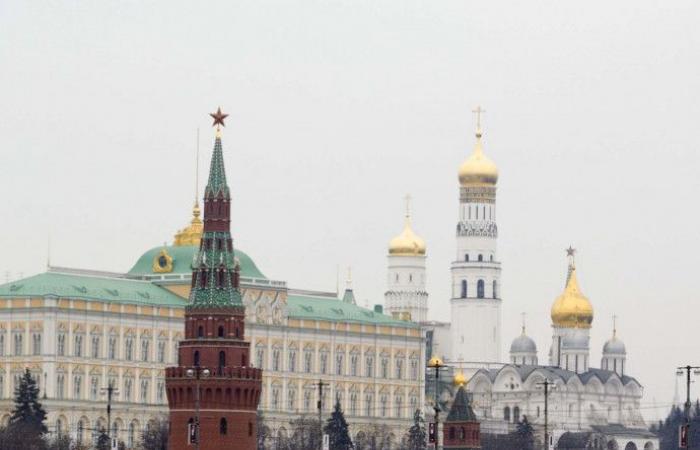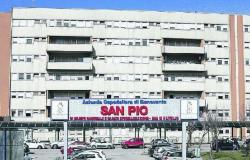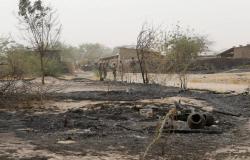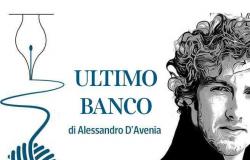The decision, announced on June 25 by Russian authorities, to impose restrictions on 81 European media outlets, preventing their access to television and the Internet in the territory of the Russian Federation, has provoked harsh reactions in Europe.
Among the European media targeted are the websites of Rai, LA7, The print e Republicas the press agency explains Ria Novostibut also German newspapers The mirror, The time e Frankfurter Allgemeine Zeitungof French newspapers The world, The cross and the agency France Press (AFP) and Radio France. Russia has also imposed restrictions on Spanish newspapers The world ed The countrythe EFE news agency, the Austrian state broadcaster ORF and web newspapers Politico ed Euobserver.
The Russian initiative constitutes a “retaliation” on the media front with respect to the decision taken on 17 May by the European Council to ban the video and internet dissemination of the agency within the territory of the Union Ria Novosti and newspapers Izvestia e Russian Gazeta.
«In response to the decision taken by the EU Council on 17 May to ban “any broadcasting activity” on three Russian media (Ria Novosti, Izvestia e Russian Gazeta) which comes into force today, June 25, counter-restrictions are being introduced on access from the territory of the Russian Federation to the radio and television resources of numerous media of the EU member states and operators from all over Europe, which systematically spread false information about the conduct of the “special military operation” underway in Ukraine, as stated in the statement of the Russian Foreign Ministry.
The Russians, the note continues, have repeatedly and at various levels warned that “politically motivated harassment of journalists and unfounded bans on Russian media in the EU will not go unnoticed.” The statement notes that «despite this, Brussels and the capitals of the Union countries have chosen to take the path of escalation, forcing Moscow to adopt mirror and proportional countermeasures with another illegitimate ban. The responsibility for this development lies exclusively with the leadership of the European Union and the countries that supported this decision,” the ministry underlined.
Moreover, since the beginning of the conflict the EU had banned television publications Russian internet which ones Russia Today e Sputnik on charges of being a media tool of the Kremlin.
The media war was therefore started by the EU showing from the beginning of the conflict that they feared that the European public could receive information different from the pro-Ukrainian and anti-Russian information which, almost in unified networks and newspapers, has been disseminated for almost two and a half years in Europe and Italy.
Censorship, understandable in nations at war, often backfires in democracies and non-belligerent countries such as in the case of Europe because it highlights the weakness of governments, leaders and their messages. It is no coincidence that in order to try to eliminate the few dissonant voices from the mainstream pro-Ukrainian, real proscription lists containing the names of intellectuals and journalists defined as “Putinians” and “pro-Russians” have been made public in various media, including in Italy.
In light of all this, the bronze face with which the EU reacted appears decidedly over the top to Russian media retaliation. The statement by the EU High Representative for Foreign Affairs and Security Policy, Josep Borrell, presented to the media by spokesman Peter Stano, is beyond the limits of the ridiculous. “The EU condemns the completely unfounded decision by the Russian authorities to block access to more than eighty European media outlets in Russia. This decision further limits access to free and independent information and expands the already severe media censorship in Russia. The banned European media operate according to journalistic principles and standards. They provide factual information, including to the Russian public, including about Russia’s illegal war of aggression against Ukraine. In contrast, Russian disinformation and propaganda outlets, against which the EU has introduced restrictive measures, do not represent free and independent media. Their broadcasting activities in the EU have been suspended because these broadcasters are under the control of the Russian authorities and are instrumental in supporting the war of aggression against Ukraine.”
In practice the EU tells the Russians that their media is terrible Putinian propaganda and it is right to ban them from Europe while ours are an independent, free and professional source of information and even in Meuse they should be happy for the opportunity to drink from it.
Not satisfied, Borrell concluded by stressing that “respect for freedom of expression and the media is a fundamental value for the EU, which will continue to support the availability of factual information also for the Russian public. This is why we condemn the Russian decision as totally unfounded”.
In reality, the almost total subservience to official information and propaganda Ukraine/NATO/EU without any critical analysis has made much of the Italian and European media ridiculous and unreliable not so much in the eyes of the Russians but in the judgment of European readers as demonstrated by the collapse of the audience and copies sold. A phenomenon that in Italy has reached a minimum beyond which it is easy to see the death of journalism, largely replaced by servility and flattery towards politics, foreign powers and power lobbies.
It is not surprising that even the Italian Ministry of Foreign Affairs was quick to condemn strongly welcomes the decision of the Russian Federation to block access on its territory to the broadcasts and websites of several European media, including the Italian Rai, La7, The Republic e The print but perhaps the tone used is surprising. “We express regret for the unjustified measure adopted against these Italian broadcasters and newspapers, which have always provided objective and impartial information on the conflict in Ukraine,” reads a note from the Farnesina. “These media have followed objective information criteria, and in any case linked to an autonomous interpretation of the facts following the invasion of Ukraine by the Russian Federation.”
Beyond the final verdict of the readersentire volumes could be written about the independence of our media but it is sufficient to simply recall that the director of Repubblica and the Rai correspondent from Kiev were decorated by President Volodymyr Zelensky for their services to Ukraine and both expressed satisfaction with this recognition. The print Not only did it follow (like almost all newspapers) a far from objective line but it also managed to publish a photo of civilians killed by the bombing of Ukrainian troops in Donetsk, implying, without specifying the nature of the image, that they were victims of Russian raids.
Regarding Rai, in two and a half years it has distinguished itself in many broadcasts for one-way information with ample space for Ukrainian propaganda passed off as truth and censorship of Russian sources and information. The same can be said for La7 (with the exception of very few programmes) but on public television some “kneeling” interviews with Zelensky will remain in the history of journalism, striking episodes of a trend that has never seen anyone ask the Ukrainian leader, not even a question on the outlawed oppositions, on the imprisoned journalists, on the “Nazi question”, on the ethnic cleansing of “pro-Russian” people in the eastern regions, on the forced enlistments in the streets of “cannon fodder”, or on the elections postponed indefinitely in the moment of maximum unpopularity of the president.
But here it is not a question of establishing who deserves censorship or not. and boycotts that should not exist for anyone in any country. The real issue is how can we complain today about the fact that the Russians are banning our media when we were the first to start banning Russian media since 2022? After all, the fact that Europe does not care so much about freedom of information is demonstrated by the many statements against the danger of Russian fake news (statements therefore aimed at urging greater control over the media) and it is well understood by the deafening silence of the institutions and (look at that?) of almost all the media in the face of reports of violence against freedom of the press and journalists in Ukraine.
As the American writes Politicothe Kiev regime is targeting journalists investigating corruption among civil servants and silences government critics. Yevgeniy Shulgat has faced threats over an article on corruption in the Security Service of Ukraine (SBU).
Other Ukrainian journalists covering corruption in the country, such as Alexander Salizhenko and Yuriy Nikolov, also say that the government uses various intimidation tactics. All of them are subject to online harassment, accusations of evading military service and threats of being sent to the front lines.
Even before Politico the organization Reporters Without Borders has repeatedly denounced the difficulties of Ukrainian journalists and on June 19 complained that “pressure against independent media in Ukraine has been increasing for several months. Surveillance, threats of conscription into the army, increased control by the authorities… Political pressure and obstacles are growing on Ukrainian media. Since the beginning of 2024, at least five journalists have been under surveillance or threatened because of publications on corruption.”
RSF denounces the appointment of a military man as director of the national news agency Ukrinform on May 24th and the revelation on May 29th of the publication of a list of guests to be excluded from the programs and the impossibility of providing reliable news on the (very bad) progress of the war.






